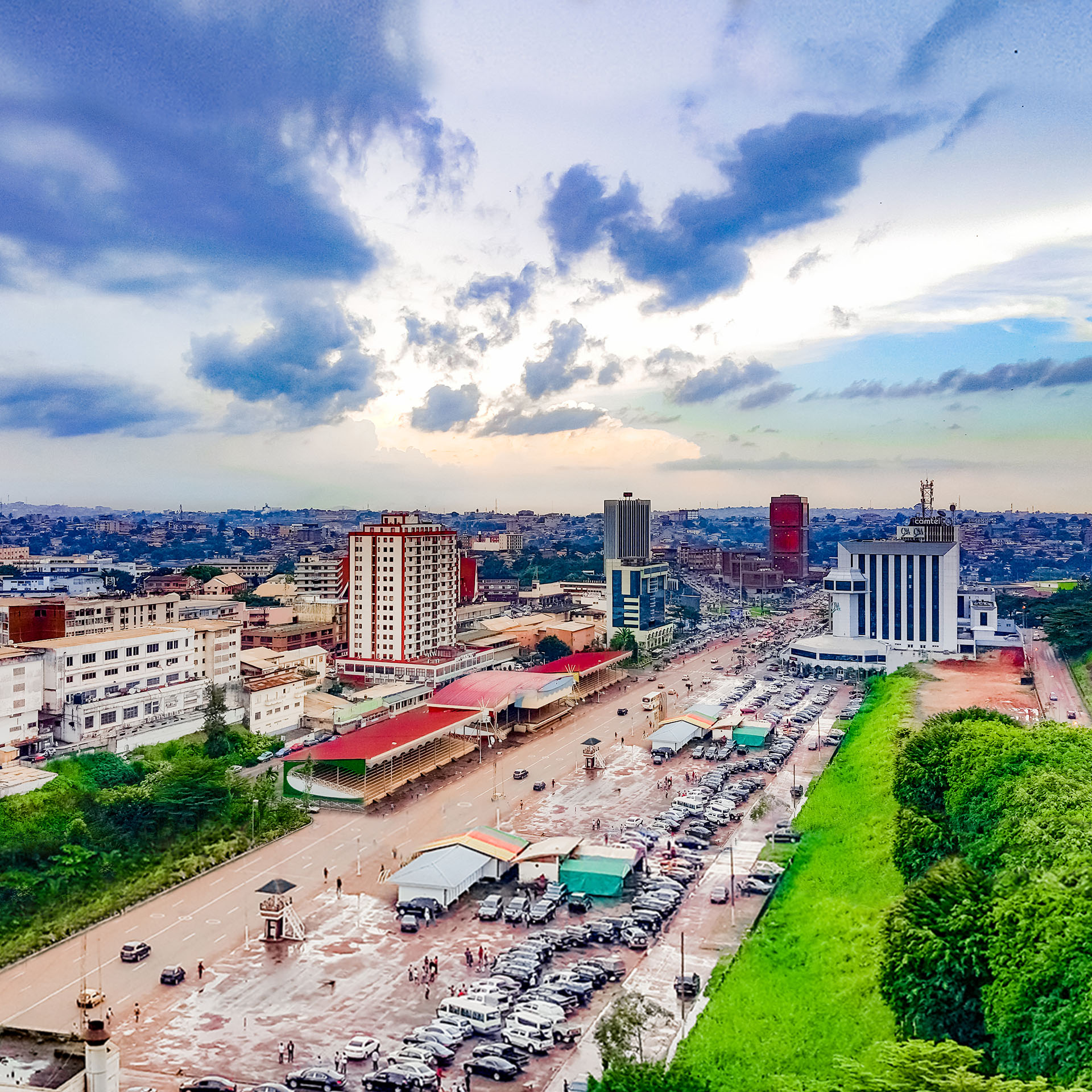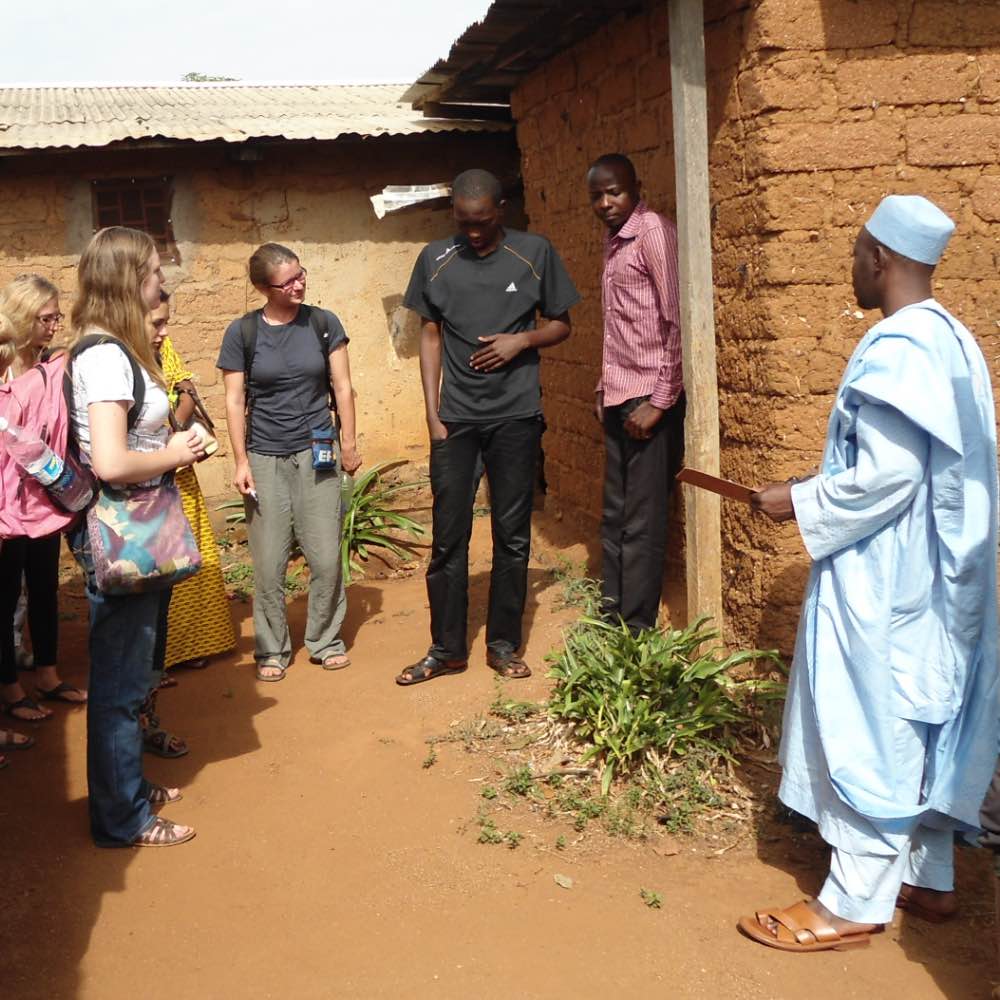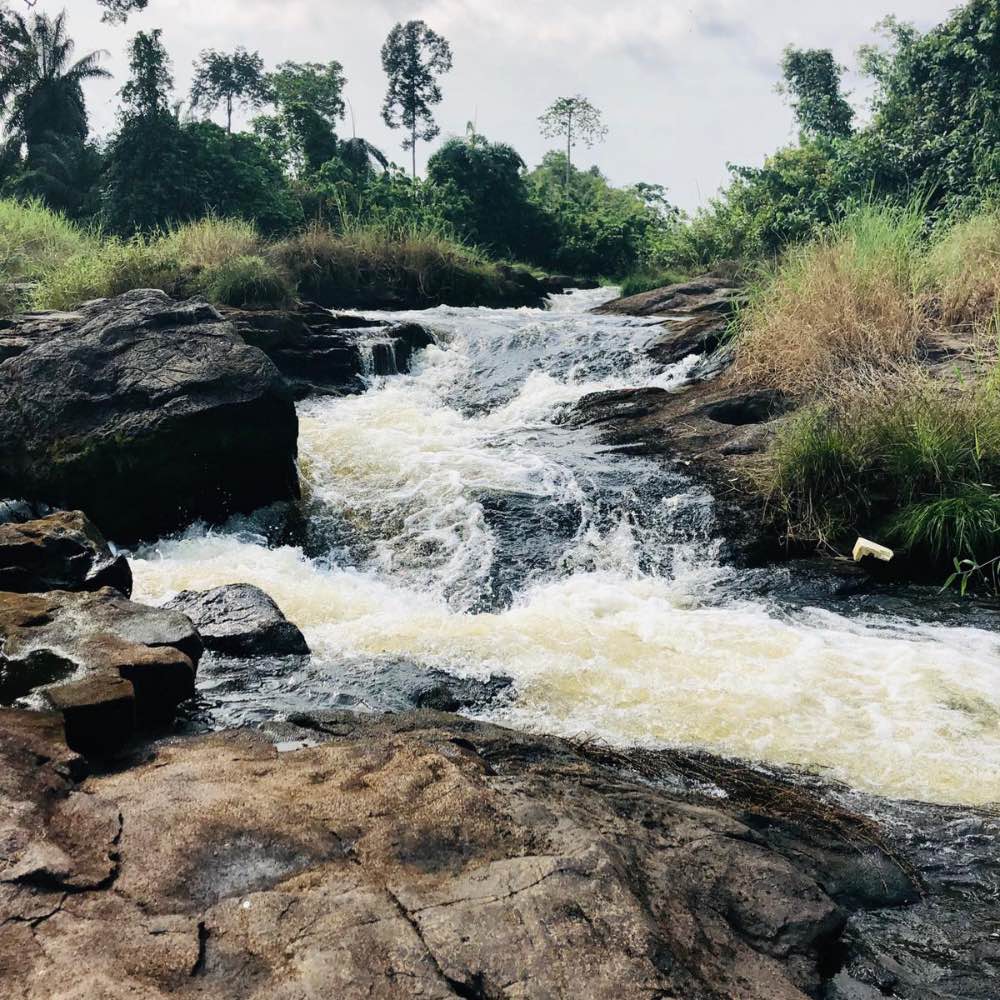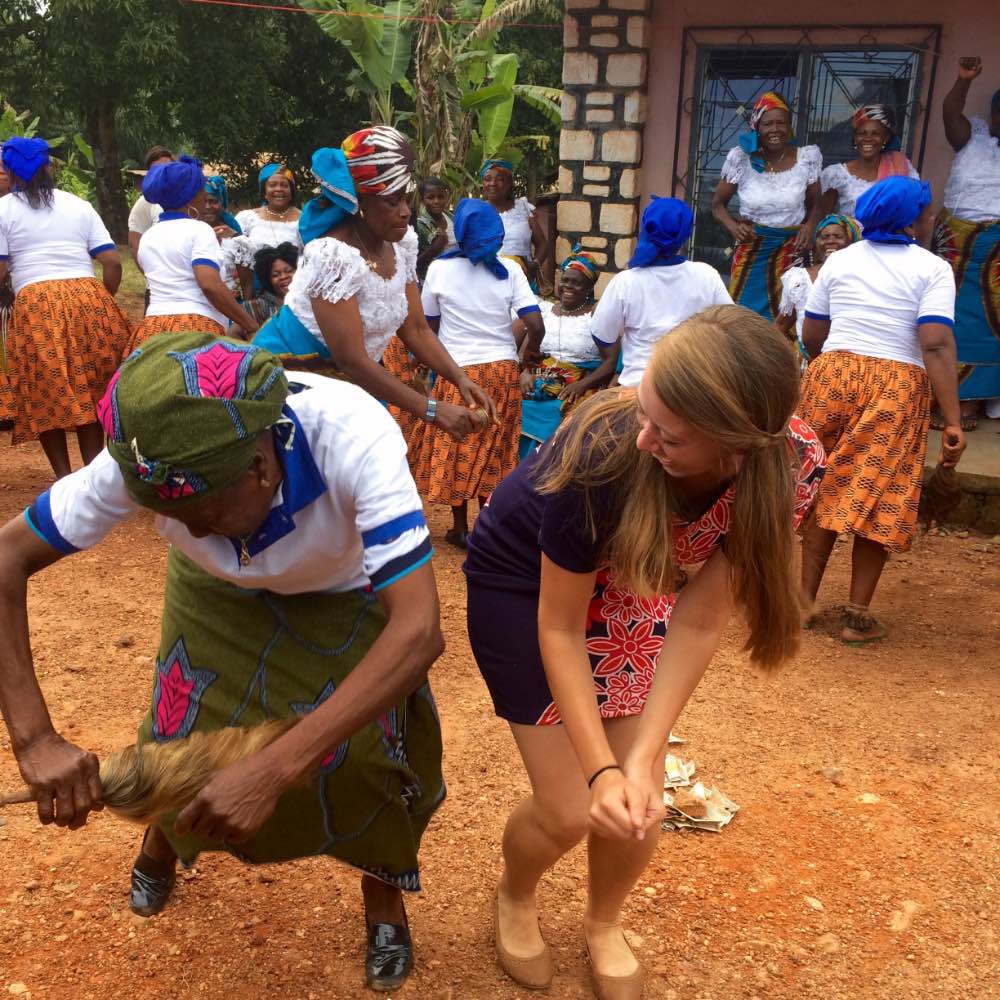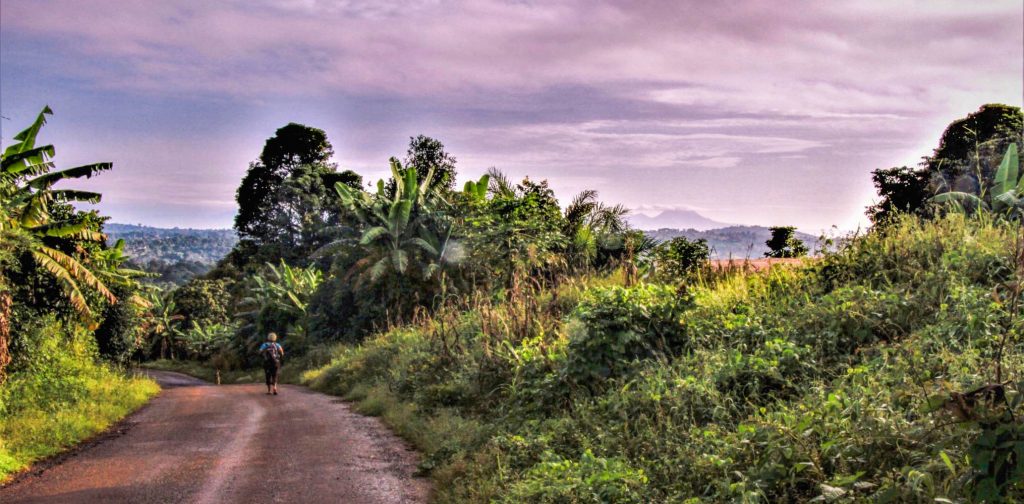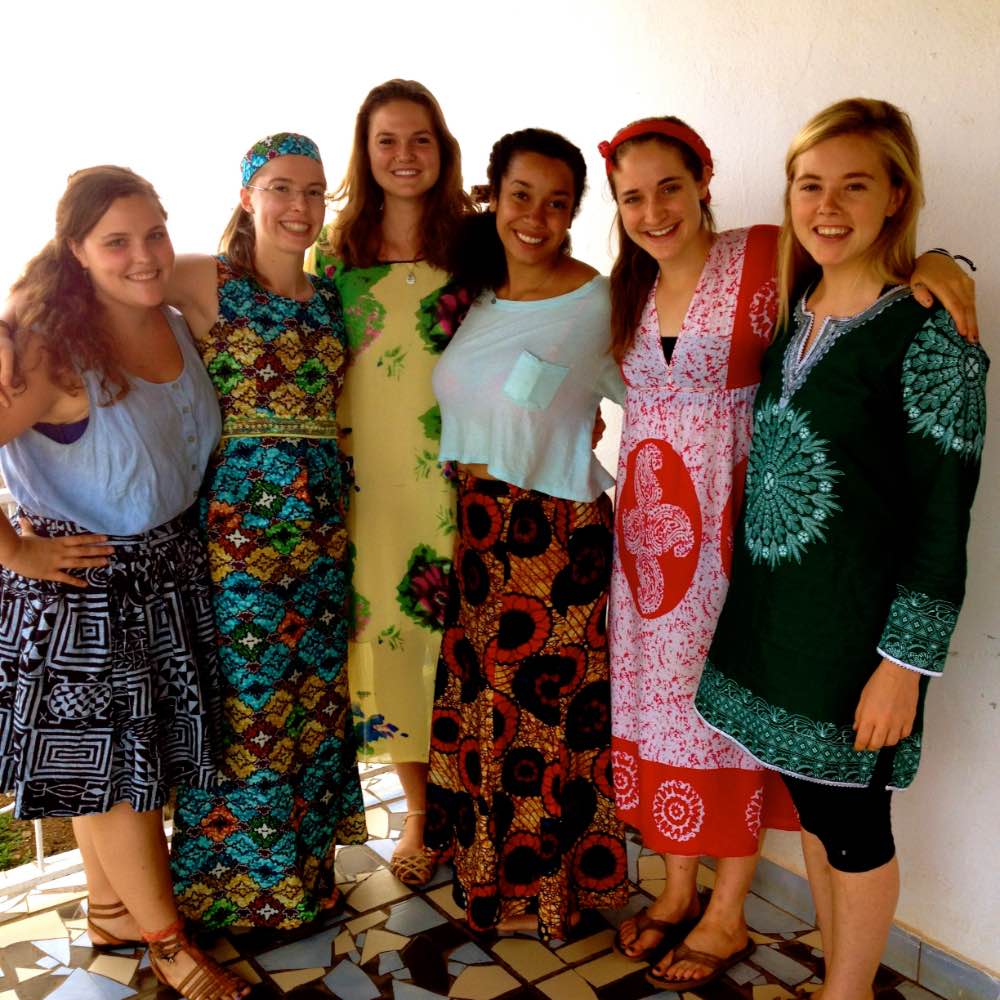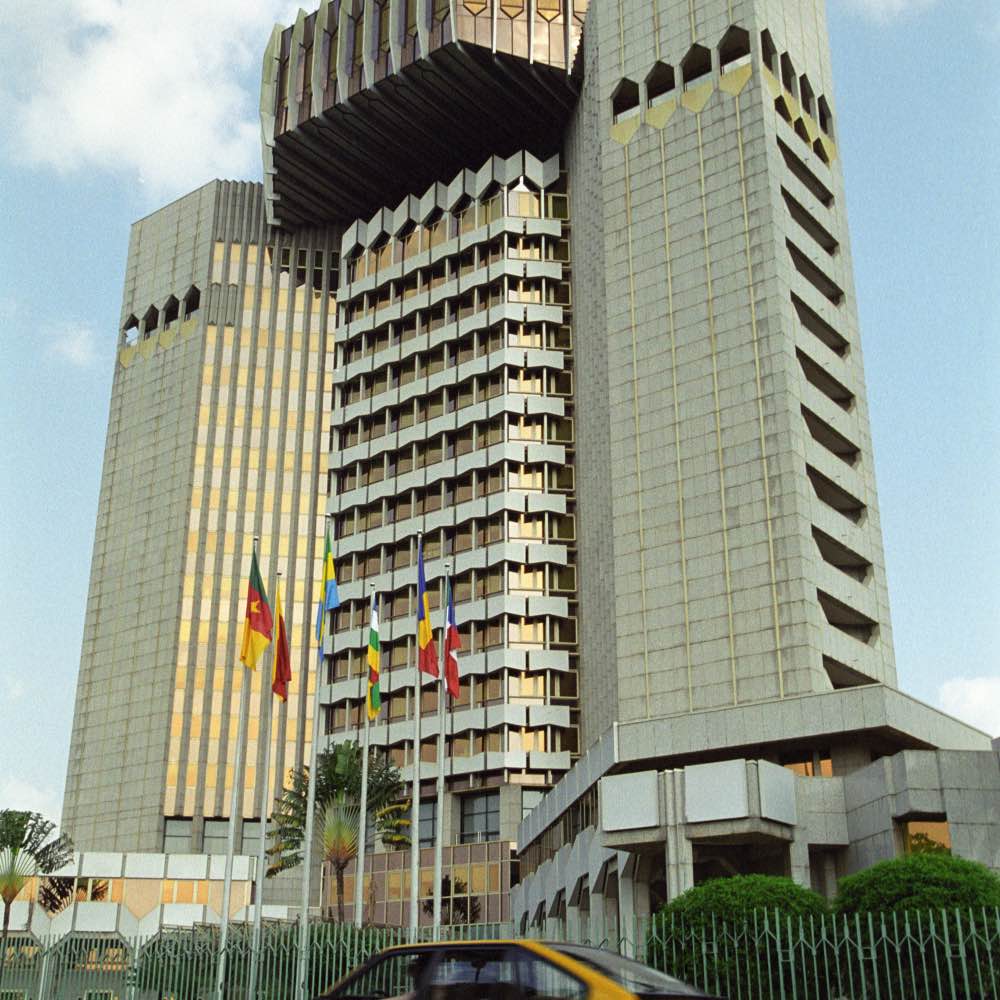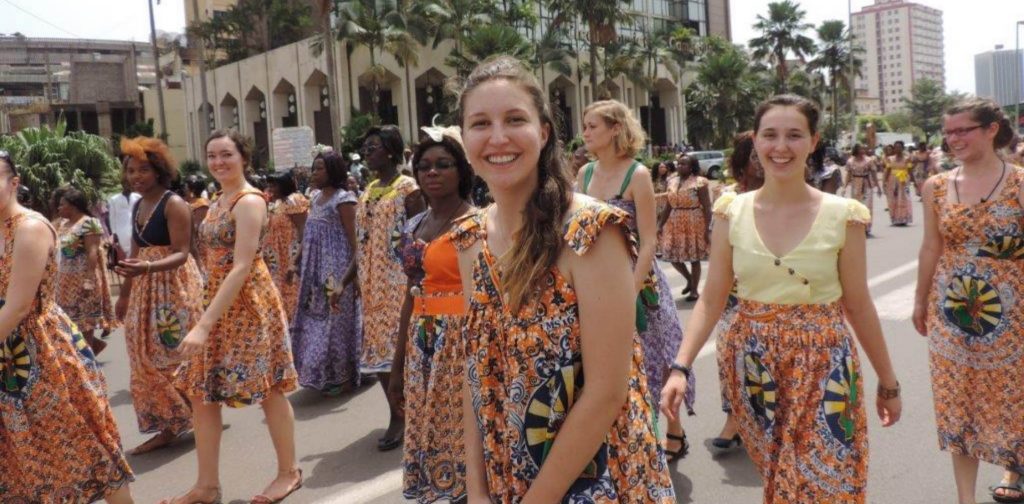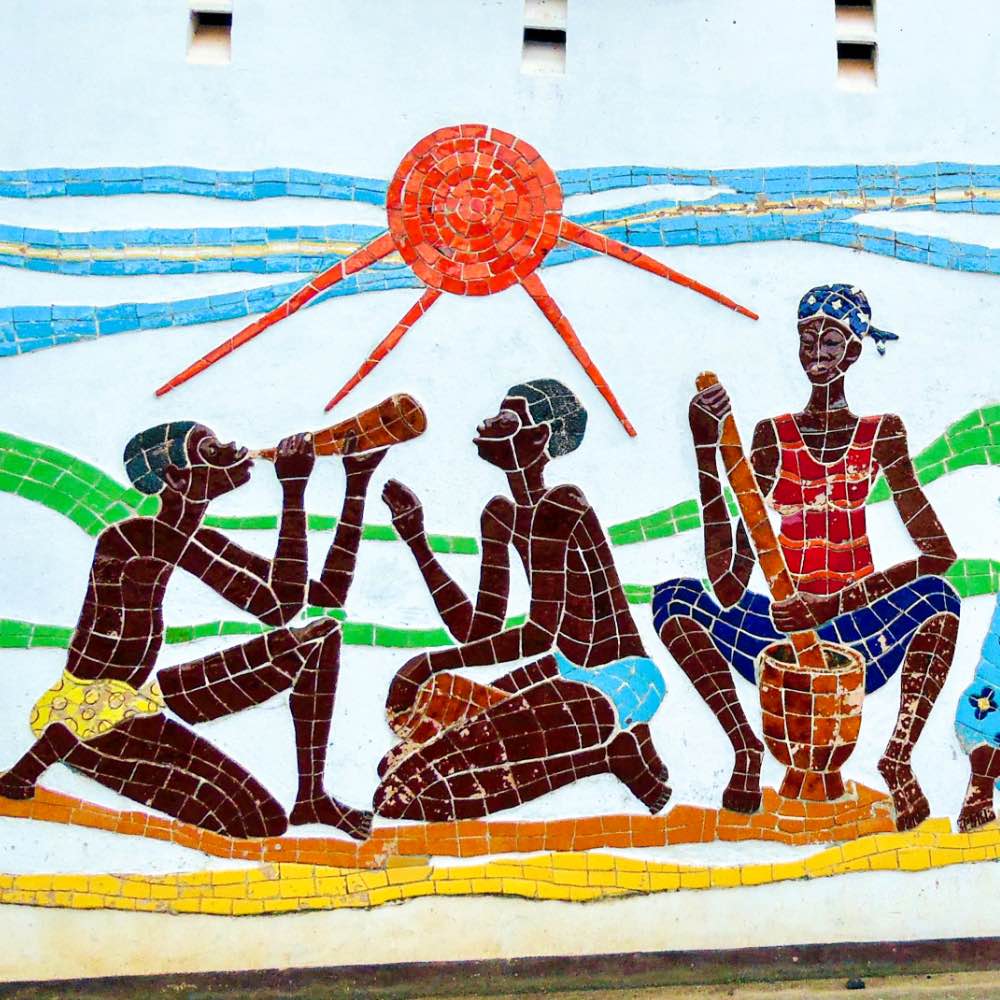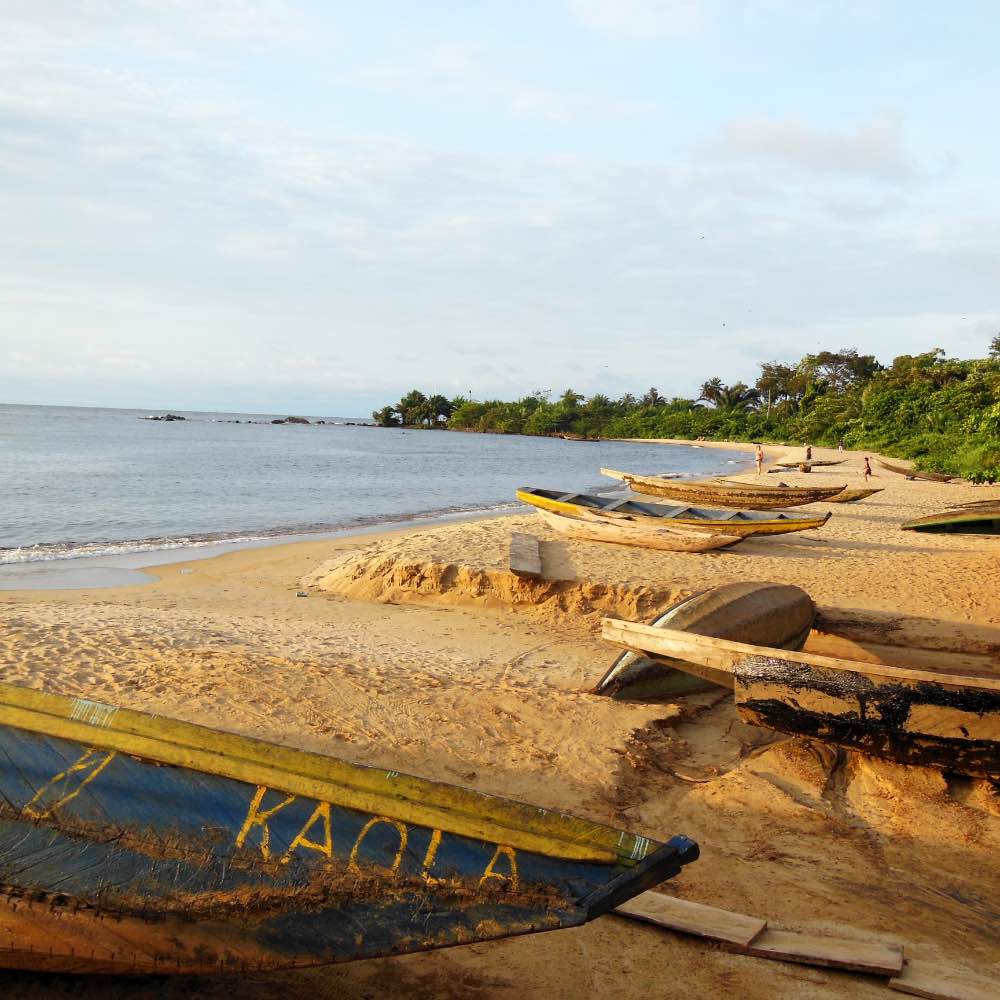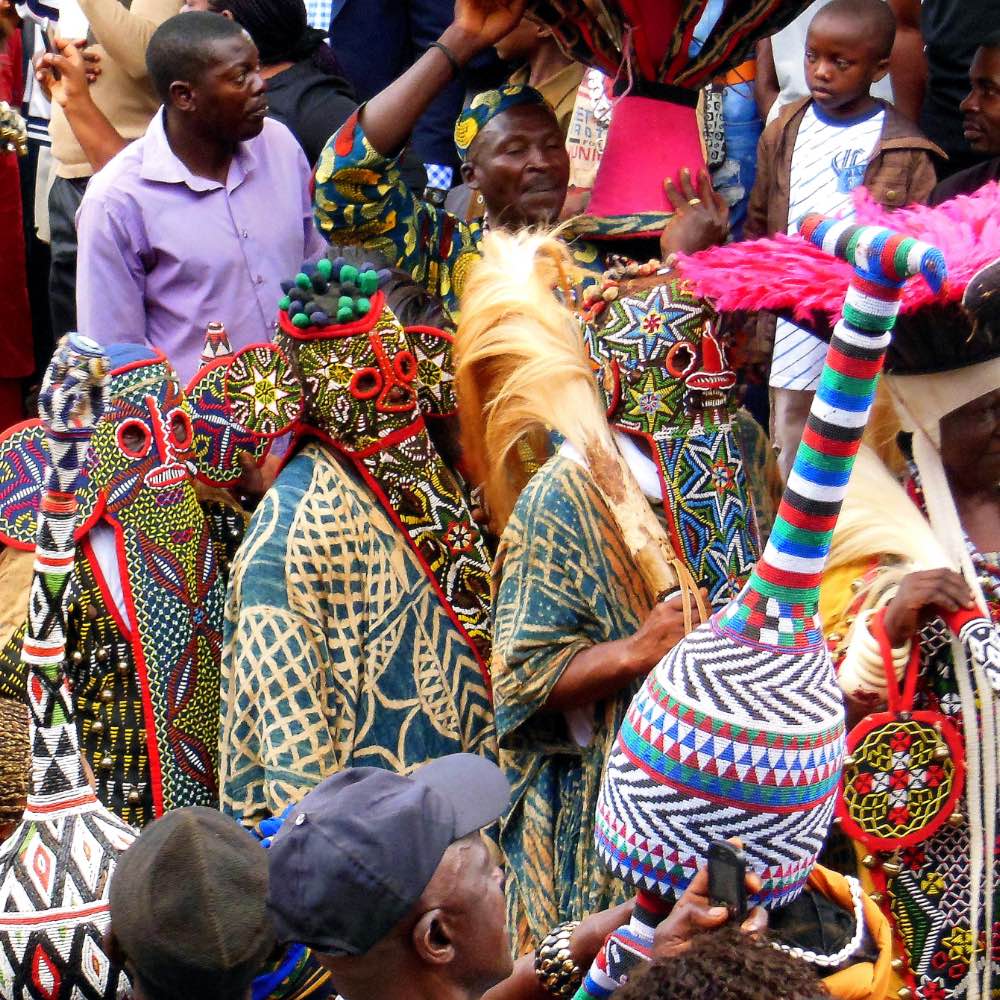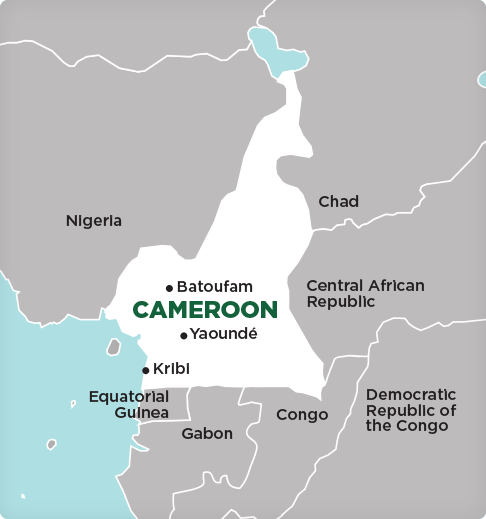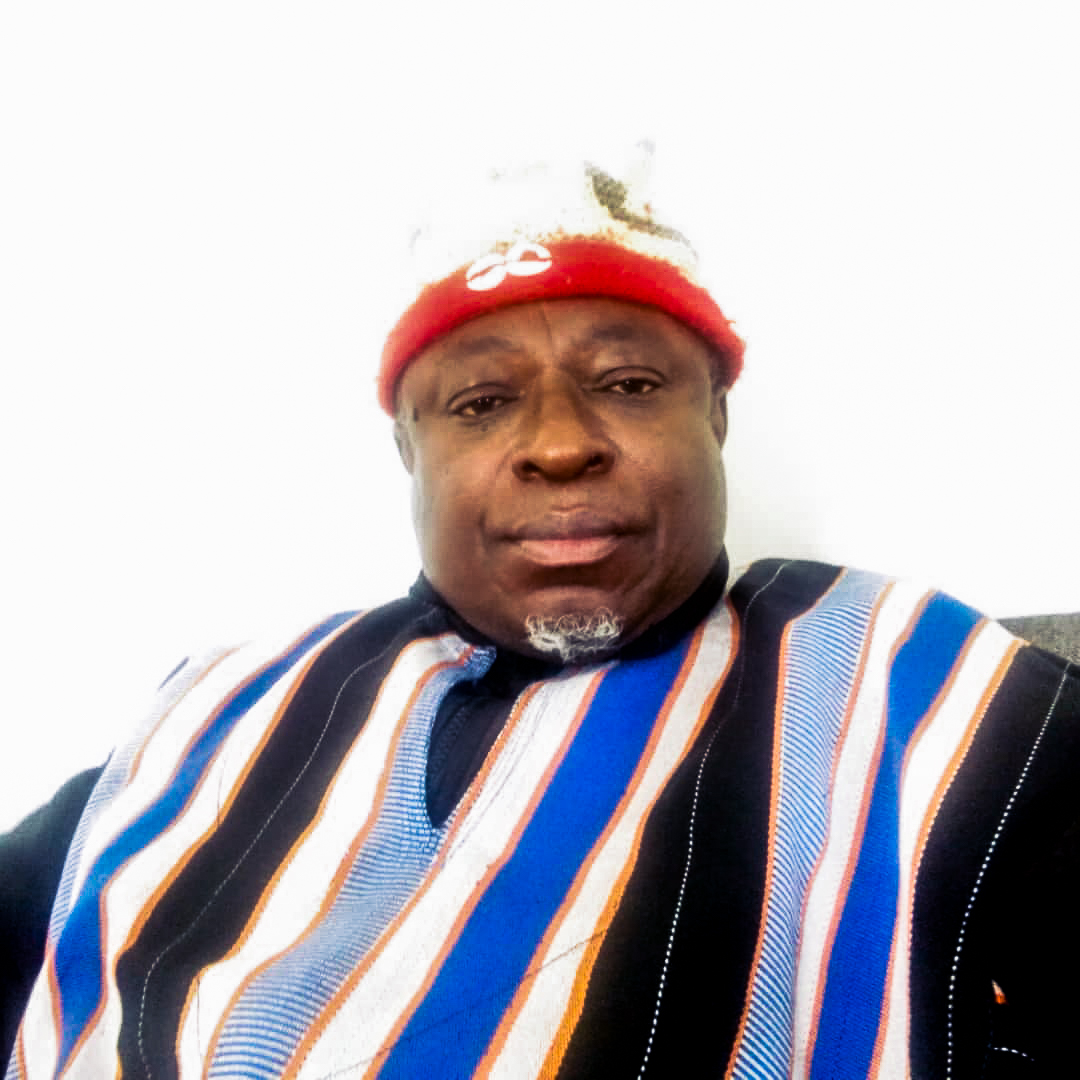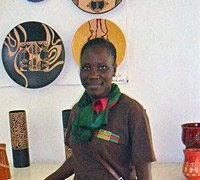Modernization and Social Change in Cameroon
Modernization and Social Change in Cameroon – syllabus
(AFRS3000 / 3 credits)
An interdisciplinary course taught in English, with additional facilitated discussion sessions in French with Cameroonian students. Explore Cameroon’s complex social history and postcolonial national identities in one of the most ethnically and geographically diverse countries on the continent. In addition to lectures and discussions, the course integrates multiple learning methods including required readings, excursions to relevant sites, group discussions and processing sessions, participatory workshops, student presentations, and independent or self-structured learning.
Development Studies
Development Studies – syllabus
(SDIS3000 / 3 credits)
Taught in English, with additional facilitated discussion sessions in French with Cameroonian students for the French language track. Examine foundational concepts, principles, and paradigms of development studies for the purposes of critically engaging with specific topics and issues relating to the Cameroonian context. Through formal lectures, assigned readings, group discussions, and integrated field visits, students explore the ways in which development initiativesin local, regional, and national contexts seek to become agents for changing structural relationships in society.
French for Development Studies
French for Development Studies – syllabus
(FREN2003-2503 / 3 credits)
French for Development Studies – syllabus
(FREN3003-3503 / 3 credits)
French for Development Studies – syllabus
(FREN4003-4503 / 3 credits)
Taught in French for students who have completed two semesters of French. This language course focuses on the acquisition of the French lexicon used in the areas of development and social change to equip students with the language tools needed to work with NGOs and local and international development associations. Students are immersed in course materials designed to build their capacity in comprehension, speaking, reading, and writing skills to support the course’s focus on engaging students with discourses, vocabularies, discussions, and readings centered on development issues in Cameroon. Based on in-country evaluation, including oral proficiency testing, students are placed in the appropriate level, with additional language practice in homestays and on field visits.
Research Methods and Ethics
Research Methods and Ethics – syllabus
(ANTH3500 / 3 credits)
Taught in English, the Research Methods and Ethics course provides students with the essential tools required to conduct an independent study or internship in either the public health or social research domains in Cameroon. Material includes cross-cultural adaptation and skills building; project selection and refinement; appropriate methodologies; field study ethics and the World Learning/SIT Human Subjects Review Policy; developing contacts and finding resources; developing skills in observation and interviewing; gathering, organizing, and communicating data; and maintaining a field journal.
Independent Study Project or Internship
In addition to taking the above courses, students will also need to enroll in one of the following two courses:
Internship and Seminar
Internship and Seminar – syllabus
(ITRN3000 / 4 credits)
International development became firmly established as a field of study and practice with an extensive apparatus that spans international borders, driven by an agenda of closing the global wealth gap at the onset of decolonization. Compared to most countries in the region, Cameroon has, since independence, had relative political stability, which has permitted investments in agriculture, transport infrastructure, petroleum, and timber. In this sense Cameroon provides an excellent setting in which to study mainstream development at play and the transitions that occur as society gets increasingly integrated into modern lifestyles. This internship experience is intended to place students in organizations at the center of this transition, as a way to enable them to appreciate the drivers and goals of mainstream development practice and how they have been structured. Internship and coursework will be completed in French.
Sample internships:
- Providing financial support to women entrepreneurs at nationwide savings and credit cooperative MUFFA Cameroon
- Assisting efforts to end hunger, poverty, and socioeconomic injustice; protect the environment; and support indigenous rights at RELUFA, a nonpartisan national network of secular nonprofit organizations and mainstream churches from all regions of Cameroon
- Working with Women’s Promotion and Assistance Association to eradicate illiteracy, prostitution, child abuse, poverty, and human trafficking
- Advocating for farmers and other Cameroonians at Citizens Association for the Defense of Collective Interests, a well-known and respected organization that works to change unfair laws and corruption across all of Cameroon
- Assisting in projects such as agricultural investment, women’s entrepreneurial classes, and a girls’ soccer program at Breaking Ground, an organization founded by a former SIT student and her classmates on the principle that a community project can only effectively address the needs of a population if it is conceived, planned, and implemented by the community for whom it is intended
OR
Independent Study Project
Independent Study Project – syllabus
(ISPR3000 / 4 credits)
Conducted in Yaoundé or in another approved location appropriate to the project in Cameroon. Sample ISP topics: political opinions among Cameroonian youth; Chinese and American development efforts and perceptions in Cameroon; gender roles and standards of beauty in Cameroon; traditional and modern healing: people’s preferences; usages and practices of bilingualism in Cameroonian schools; influences of Westernization on the Bikutsi style of music; oral history of the Bamiléké people; land grabbing and its local impacts; microfinance and women’s empowerment. Coursework and final project completed will be in French.
Sample ISP topics:
- Representation and challenge of women’s roles through traditional dance
- Impact of gendered microfinance on domestic violence
- Efforts and obstacles toward political change in contemporary Cameroon
- Cultivating rice in import-dependent Cameroon
- Political opinion among Cameroonian youth
- Chinese and American development efforts and perceptions in Cameroon
- Gender roles and standards of beauty in Cameroon
- Traditional and modern healing: people’s preferences
- The uses and practices of bilingualism in Cameroonian schools
- The influences of westernization on the Bikutsi style of music
- Oral history of the Bamiléké people
- Land grabbing and its local impacts
- Microfinance and women’s empowerment
Browse this program’s Independent Study Projects / undergraduate research.


